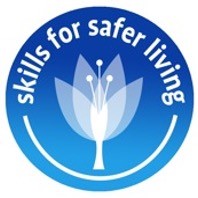If you are in distress, you can call or text 988 at any time. If it is an emergency, call 9-1-1 or go to your local emergency department.
- Professional Resources, Webinars
Skills for Safer Living Program and Implementation
The Skills for Safer Living program is an intervention for people who experience persistent suicide ideation and behaviours. Skills for Safer Living seeks to equip participants with the skills and strategies to live more safely, even if thoughts of suicide continue. Modules include keeping safe(r), emotional literacy, problem solving, and interpersonal relationships. Each group intervention is facilitated by a health-care professional and a person with lived or living experience of suicide-related thoughts and behaviours. Dr. Yvonne Bergmans, Dr. Tim Guimond, and Yolaine Roberge discuss the creation of the program, its clinical basis, the new data highlighting its effectiveness, the role of peer support and how to implement the program in your area and through your organization.
- Professional Resources, Webinars
Skills for Safer Living Program and Implementation
Skills for Safer Living Program and Implementation
- Suicide Prevention
The Skills for Safer Living program is an intervention for people who experience persistent suicide ideation and behaviours. Skills for Safer Living seeks to equip participants with the skills and strategies to live more safely, even if thoughts of suicide continue. Modules include keeping safe(r), emotional literacy, problem solving, and interpersonal relationships. Each group intervention is facilitated by a health-care professional and a person with lived or living experience of suicide-related thoughts and behaviours. Dr. Yvonne Bergmans, Dr. Tim Guimond, and Yolaine Roberge discuss the creation of the program, its clinical basis, the new data highlighting its effectiveness, the role of peer support and how to implement the program in your area and through your organization.

SHARE THIS PAGE
RELATED

Review our Assessment Framework for Mental Health Apps — a national framework containing key standards for safe, quality, and effective mental health apps in Canada.

To help expand the use of e-mental health services, we developed four online learning modules based on our Toolkit for E-Mental Health Implementation, in collaboration with the Centre for Addiction and Mental Health (CAMH).

Stepped Care 2.0© (SC2.0) is a transformative model for organizing and delivering evidence-informed mental health and substance use services.

